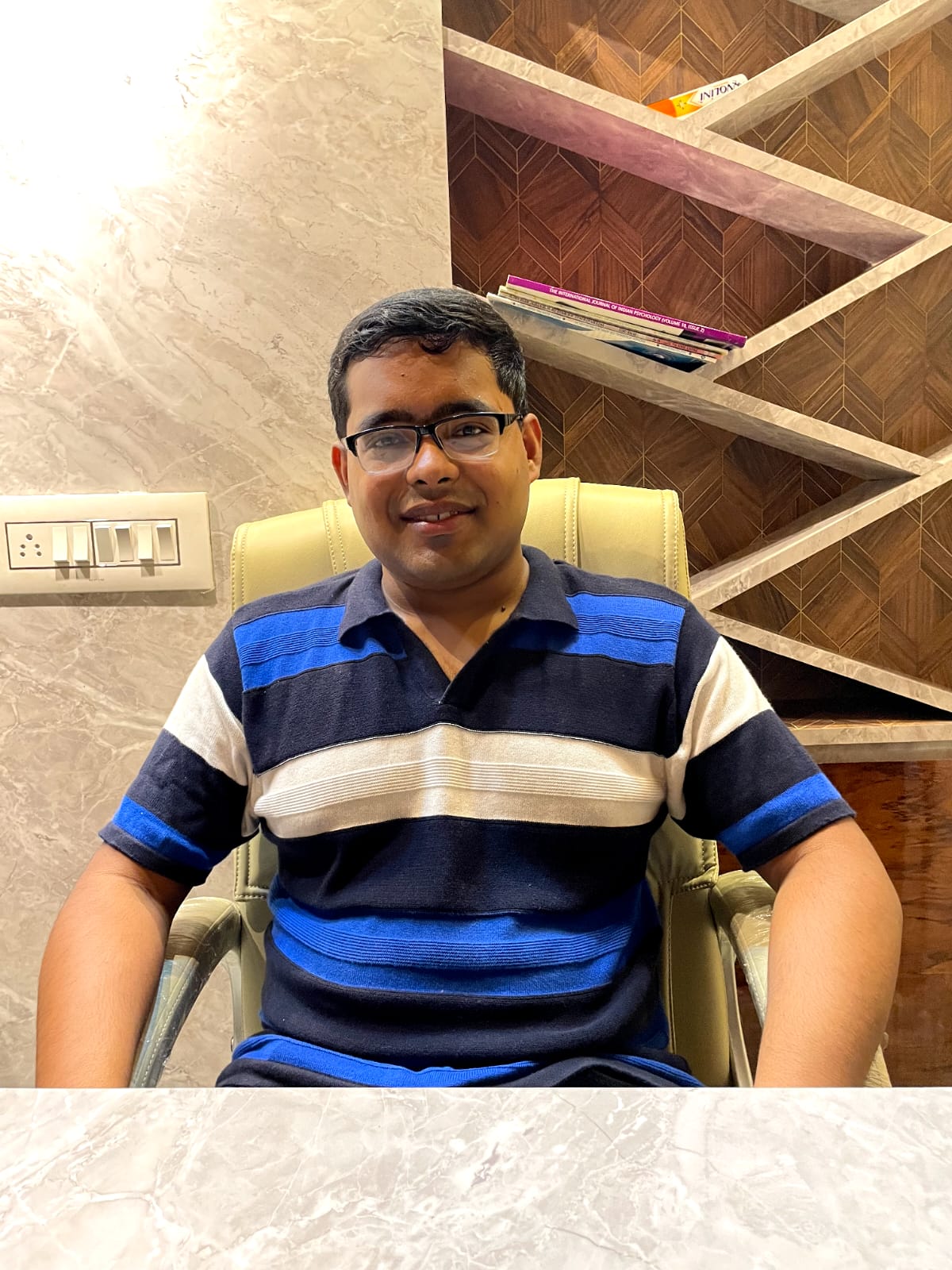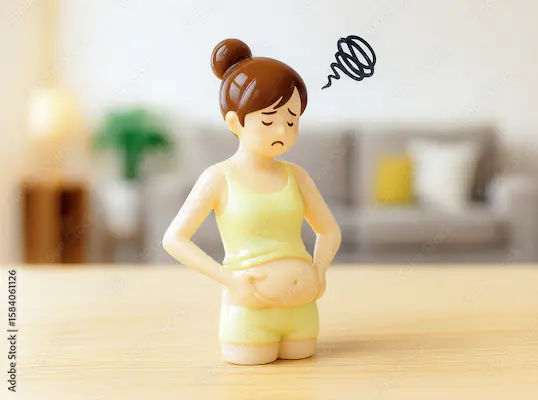Understanding Anxiety Disorders: Symptoms, Types, and Treatments
Learn about anxiety disorders, their common symptoms, different types, and available treatment options to manage and improve mental health effectively.

Written by Dr. Siri Nallapu
Reviewed by Dr. J T Hema Pratima MBBS, Fellowship in Diabetes Mellitus
Last updated on 13th Jan, 2026

Introduction
That feeling of your heart pounding before a big presentation or your stomach churning during a stressful time is a universal human experience. But what happens when that worry doesn't subside? When it becomes a constant, overwhelming presence that interferes with your daily life? You might be dealing with an anxiety disorder. Far more than just everyday nerves, anxiety disorders are among the most common mental health conditions, affecting millions worldwide. The good news is that they are highly treatable. This guide will walk you through everything you need to know, from identifying the symptoms of an anxiety attack to understanding the different types of anxiety disorders and exploring the most effective treatment options. Our goal is to empower you with knowledge and reassure you that help and hope are readily available.
What is an Anxiety Disorder?
An anxiety disorder is a mental health condition characterized by persistent, excessive fear or worry in situations that are not genuinely threatening. Unlike the temporary anxiety felt before a major life event, an anxiety disorder is long-lasting, can intensify over time, and significantly impairs social, occupational, and other important areas of functioning. It’s not a character flaw or a sign of weakness; it's a legitimate medical condition that involves complex changes in brain chemistry and function.
Anxiety vs. Normal Anxiety: Knowing the Difference
It's crucial to distinguish between normal anxiety and an anxiety disorder. Normal anxiety is a protective response to stress, often called the "fight-or-flight" response. It's situational, proportionate to the threat, and dissipates once the situation is resolved. For example, feeling nervous before a job interview is normal.
An anxiety disorder, however, is disproportionate, persistent, and often triggered by non-threatening scenarios. The worry is difficult to control and is accompanied by intense physical symptoms of anxiety that can last for six months or more. If these feelings are making it hard to get through your day, it’s a key sign that you may be dealing with a disorder.
Consult a Psychiatrist for the best advice
Common Symptoms of an Anxiety Disorder
Symptoms can vary widely from person to person but generally fall into emotional and physical categories.
Emotional and Cognitive Symptoms
Excessive and uncontrollable feelings of worry, dread, or apprehension.
Feeling tense, nervous, restless, or "on edge."
Anticipating the worst and having a pervasive sense of impending doom.
Irritability and difficulty concentrating (often described as "mind going blank").
Avoidance of situations or places that trigger anxiety.
Physical Symptoms of Anxiety
Often, the physical symptoms of an anxiety attack are what prompt individuals to seek medical help, sometimes mistaking them for cardiac or other physical illnesses. These include:
Rapid heart rate (palpitations) or pounding heart.
Shortness of breath or hyperventilation.
Sweating, trembling, or shaking.
Chest tightness or pain.
Dizziness, lightheadedness, or feeling faint.
Gastrointestinal problems, such as nausea or diarrhea.
The Different Types of Anxiety Disorders
Anxiety disorders encompass several specific conditions, each with unique features.
1. Generalized Anxiety Disorder (GAD)
GAD involves chronic, exaggerated worry about everyday life, health, work, finances, and family, with no obvious reason. The worry is pervasive and difficult to control.
2. Panic Disorder
This is characterized by recurrent, unexpected panic attacks, sudden surges of overwhelming fear and physical distress that peak within minutes. A common feature is the fear of having future attacks, leading to behavioural changes.
3. Social Anxiety Disorder (Social Phobia)
This involves an intense, persistent fear of being watched, judged, or embarrassed in social or performance situations. It's more than shyness; it can lead to avoiding social situations altogether.
4. Specific Phobias
An intense, irrational fear of a specific object or situation (e.g., heights, flying, spiders) that is disproportionate to the actual danger and leads to avoidance behaviour.
What Causes Anxiety Disorders?
There's no single cause; rather, it's a combination of factors.
Genetics and Brain Chemistry
Research suggests that anxiety disorders can run in families, indicating a genetic predisposition. Additionally, imbalances in neurotransmitters like serotonin, norepinephrine, and GABA, which regulate mood and fear, play a significant role. Brain imaging studies show that areas controlling fear and emotion (like the amygdala) may function differently in people with anxiety.
Environmental and Lifestyle Factors
Traumatic life events (abuse, loss, violence), prolonged stress from work or personal life, and certain personality traits can contribute to the development of an anxiety disorder. Substance abuse and underlying medical conditions can also trigger or worsen anxiety symptoms.
How is an Anxiety Disorder Diagnosed?
The Role of a Healthcare Professional
A formal diagnosis must be made by a qualified healthcare professional, such as a primary care physician, psychiatrist, or psychologist. There is no lab test for anxiety; diagnosis involves a detailed psychological evaluation where the clinician will discuss your thoughts, feelings, and behaviours using the criteria from the Diagnostic and Statistical Manual of Mental Disorders (DSM-5). They may also perform a physical exam or order blood tests to rule out other medical conditions that mimic anxiety symptoms (e.g., thyroid problems). If you're experiencing persistent symptoms, consult a doctor online with Apollo24|7 for a preliminary evaluation and guidance on the next steps.
Effective Treatment Options for Anxiety
Most people with an anxiety disorder benefit from treatment, often a combination of approaches.
Psychotherapy: Talking It Out
Therapy, particularly Cognitive Behavioural Therapy (CBT), is a highly effective first-line treatment. It helps individuals identify, challenge, and change distorted thought patterns and behaviours that fuel anxiety.
Cognitive Behavioural Therapy (CBT)
CBT teaches you to recognize and reframe negative "automatic thoughts" that lead to anxiety. For example, changing "I'm going to fail this presentation horribly" to "I am prepared, and I can handle this."
Exposure Therapy
A subset of CBT, exposure therapy involves gradual, controlled exposure to the feared object or context without any danger, to help overcome the anxiety associated with it. This is especially effective for phobias and OCD.
Medications for Anxiety Management
Several types of medications can provide symptom relief, often making psychotherapy more effective. These include SSRIs (e.g., sertraline, escitalopram), SNRIs (e.g., venlafaxine), and sometimes short-acting sedatives (benzodiazepines) for acute situations. A psychiatrist can determine the best medication for your specific type of anxiety disorder.
Lifestyle Changes and Home Remedies
While not a substitute for professional care, lifestyle modifications are powerful complementary tools.
Regular Exercise: Boosts endorphins and reduces stress hormones.
Mindfulness and Meditation: Practices like mindfulness-based stress reduction (MBSR) can significantly lower anxiety.
Sleep Hygiene: Prioritizing 7-9 hours of quality sleep is crucial for emotional regulation.
Diet: Reducing caffeine and alcohol, which can exacerbate anxiety, and maintaining a balanced diet can help stabilize mood.
Breathing Techniques: Deep, diaphragmatic breathing can activate the body's relaxation response during moments of high anxiety.
Coping Strategies and Prevention
While you can't always prevent an anxiety disorder, you can reduce its impact:
Learn Your Triggers: Identify what situations or thoughts make you anxious.
Practice Time Management: Break down overwhelming tasks into small, manageable steps.
Build a Support Network: Connect with understanding friends, family, or support groups.
Limit Media Consumption: Constant negative news can heighten anxiety.
Stay Present: Grounding techniques (e.g., naming five things you can see, four you can feel) can pull you out of anxious thoughts about the future.
When to Seek Professional Help
It's time to seek help when:
Your worry is interfering with your work, relationships, or daily life.
Your fear feels uncontrollable.
You are experiencing debilitating physical symptoms of anxiety.
You are using alcohol, drugs, or other substances to cope.
You have thoughts of hopelessness or suicide.
Conclusion
Living with an untreated anxiety disorder can feel like being trapped in a storm of your own thoughts and physical sensations. However, this guide underscores a message of hope: you are not alone, and this is a condition you can manage and overcome. Understanding the symptoms and types is the first step toward reclaiming your peace of mind. From evidence-based treatments like CBT and medication to empowering lifestyle adjustments and coping strategies, a multitude of tools are available. Remember, reaching out for professional guidance is the most crucial step on this journey. It’s an investment in your well-being that empowers you to break free from the cycle of anxiety and move toward a calmer, more fulfilling life. Take that first step today.
Consult a Psychiatrist for the best advice
Consult a Psychiatrist for the best advice

Dr. Vidit Singh
Psychiatrist
6 Years • MD, DNB (Psychiatry)
Lucknow
Apollomedics Super Speciality Hospital, Lucknow

Dr. Debdatta Pati
Psychiatrist
18 Years • MBBS, DPM, MD (PSYCHIATRY)
Kolkata
MCR SUPER SPECIALITY POLY CLINIC & PATHOLOGY, Kolkata

Dr. Aditya Nair
Psychiatrist
5 Years • MBBS, MD (Psychiatry)
Bansdroni
Siddhita Healthcare., Bansdroni

Dr. Abhijit Chakraborty
Psychiatrist
8 Years • MBBS, DPM, MD Psychiatry
Kolkata
BIENETRE CLINIC, Kolkata

Dr. Ankit Halder
Psychiatrist
7 Years • MBBS, MD (Psychiatry)
Kolkata
MCR SUPER SPECIALITY POLY CLINIC & PATHOLOGY, Kolkata
More articles from Anxiety disorders
Frequently Asked Questions
1. What's the difference between an anxiety attack and a panic attack?
The terms are often used interchangeably, but a panic attack is a specific, intense episode of fear with severe physical symptoms that peaks within minutes. An 'anxiety attack' is not a clinical term but often describes a gradual build-up of worry in response to a perceived threat.
2. Can anxiety cause physical pain?
Yes, absolutely. Chronic muscle tension from anxiety is a common cause of headaches, back pain, and body aches. Chest pain and stomach aches are also frequently reported physical symptoms of anxiety.
3. Are there natural remedies for severe anxiety?
While lifestyle changes like exercise, meditation, and a balanced diet can significantly help manage symptoms of an anxiety disorder, they are most effective when combined with professional treatment like therapy for severe anxiety. Always discuss supplements or major dietary changes with a doctor.
4. Can anxiety go away on its own?
For some, mild situational anxiety might subside. However, for a diagnosed anxiety disorder, it is unlikely to go away without treatment and often worsens over time. Professional help is recommended.
5. How can I help someone with an anxiety disorder?
Be patient, listen without judgment, and avoid dismissing their fears. Encourage them to seek professional help and offer to help them find resources or attend an appointment. Most importantly, let them know you care and are there for them.


.webp)

